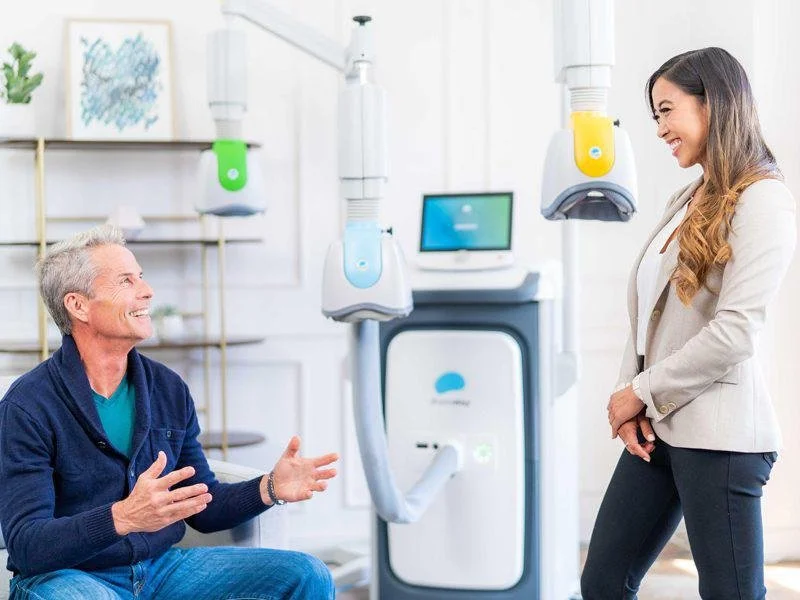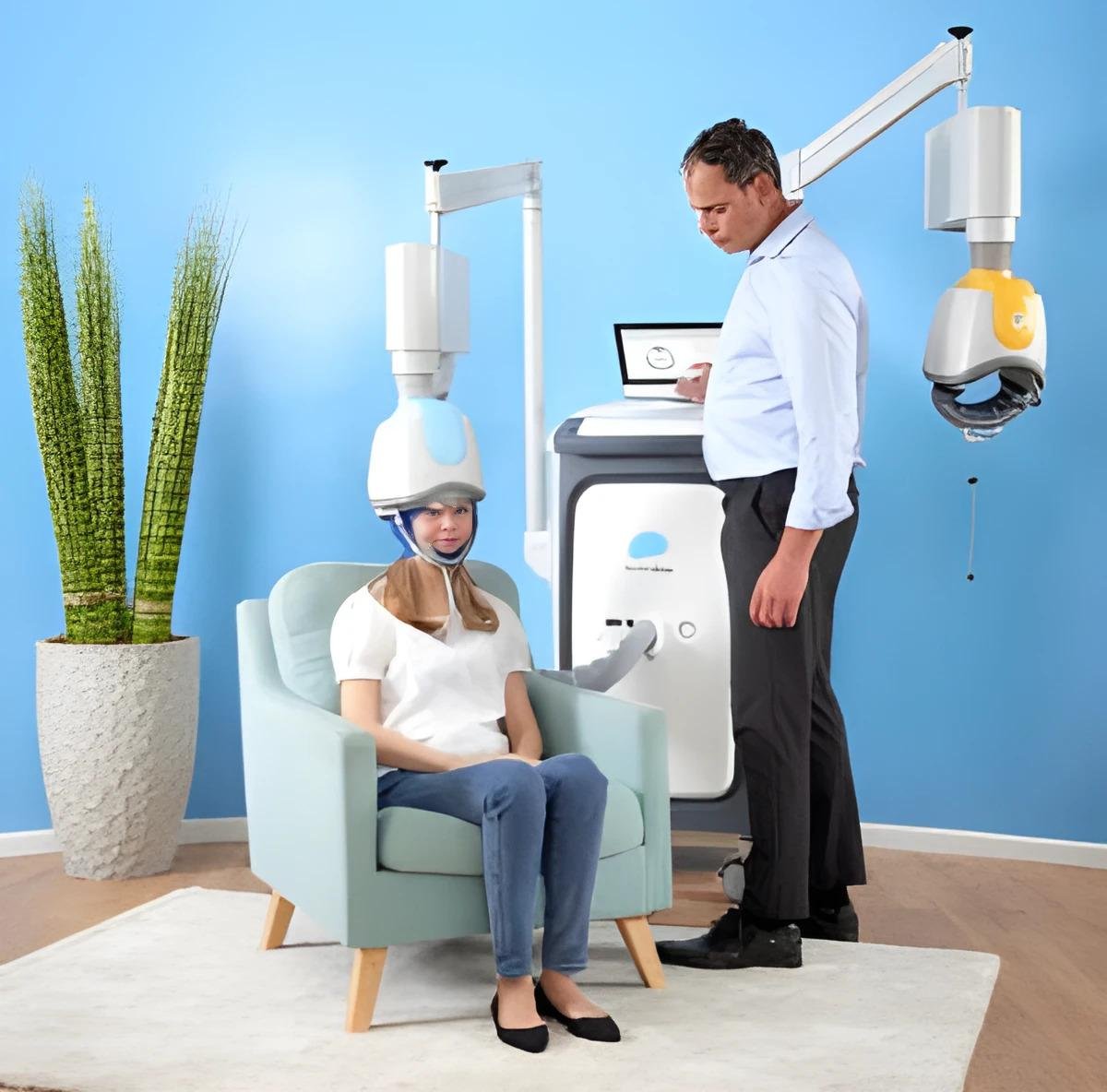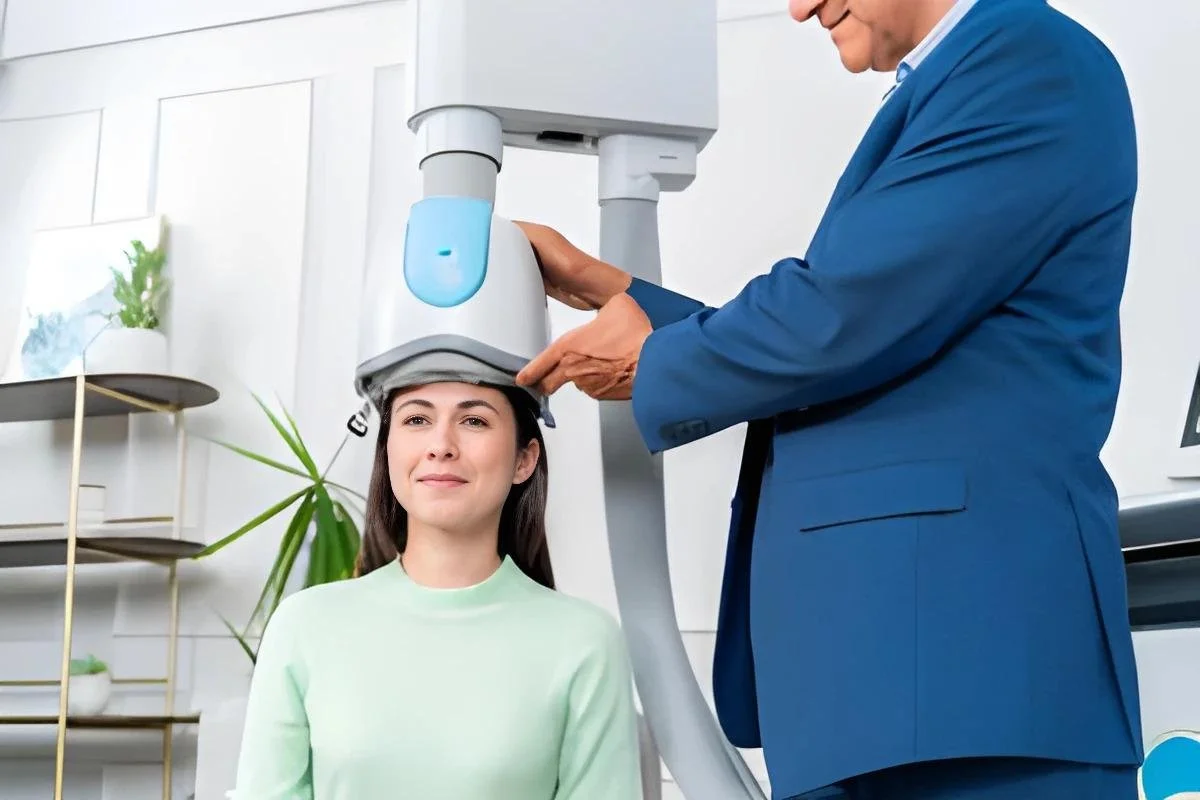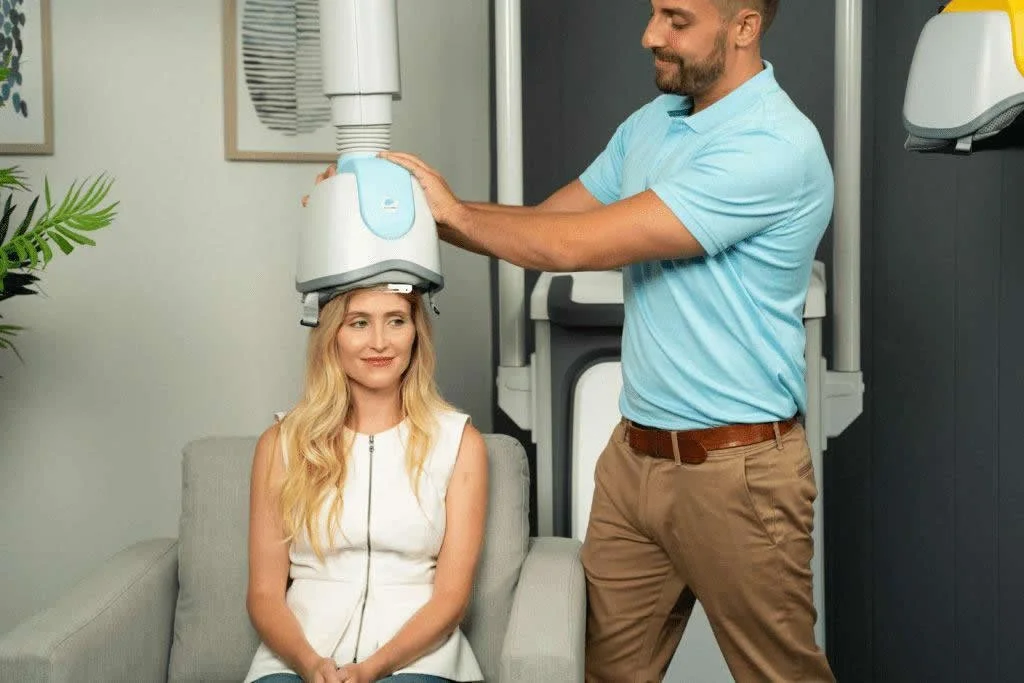TMS for Anxious Depression
TMS Therapy for Anxiety & Depression | University Place, WA
Proven relief with TMS Therapy for Anxiety
Break free from the cycle of anxiety and sadness with Deep TMS—an FDA-cleared, non-invasive treatment for anxious depression that offers real relief when medications haven’t.
Understanding Anxious Depression
Anxious depression is a subtype of Major Depressive Disorder (MDD) characterized by the combination of depressive symptoms and anxiety. People living with this condition often feel persistently low, coupled with restlessness, tension, and a sense of constant worry. This mix of emotional distress can make daily life overwhelming—especially when standard treatments fail to help.
It’s estimated that more than 10 million adults in the U.S. experience anxious depression each year, yet many go undiagnosed or struggle with ineffective treatment options.

Recognizing the Symptoms
People with anxious depression often experience symptoms of both depression and anxiety, which may include:
Persistent nervousness or fear
Difficulty sleeping or relaxing
Muscle tension or body aches
Irritability or restlessness
Racing thoughts or excessive worry
Fatigue or loss of energy
Difficulty concentrating
Feelings of hopelessness or sadness
When these symptoms persist and interfere with your daily functioning, it may be time to explore alternatives like TMS therapy.
Targeted Treatment: TMS for Anxiety & Depression
Deep Transcranial Magnetic Stimulation (Deep TMS) uses gentle magnetic pulses to activate the areas of the brain involved in mood regulation and anxiety control. At University Place TMS Clinic, we use BrainsWay’s H-Coil system—the first TMS technology FDA-cleared specifically to treat anxious depression.
By stimulating neural pathways associated with both depression and anxiety, Deep TMS helps restore balance without the side effects of medication. This treatment is especially effective for patients who have not found relief with antidepressants, anti-anxiety drugs, or talk therapy alone.
-

Is TMS Right for You?
TMS may be a good fit for you if you’ve been diagnosed with depression and struggle with symptoms of anxiety that interfere with your daily life. You may be a strong candidate if:
> You’ve tried at least two medications with limited success
> You experience side effects that make medication hard to tolerate
> You’re looking for a drug-free alternative to manage your symptoms
> You want a non-invasive treatment with long-term benefits
Our team will conduct a consultation and clinical review to determine if Deep TMS is appropriate for your needs.
-

Is TMS Safe? Are There Side Effects?
Yes—Deep TMS is both safe and well-tolerated. It does not involve medication or surgery and is associated with only mild, short-lived side effects.
Common side effects may include:
Mild scalp discomfort at the treatment site
Temporary headache during or shortly after sessions
Most of these effects fade as treatment continues. Unlike medications, Deep TMS does not cause systemic side effects like drowsiness, digestive issues, or emotional blunting.
-

Does TMS Really Work?
Yes. Deep TMS has been studied in large, randomized controlled trials and is backed by over a decade of psychiatric research. It has been shown to significantly reduce depressive symptoms and improve daily functioning—even in patients who’ve failed two or more prior antidepressants.
Clinical Outcomes (based on major studies):
60% of patients experience a measurable improvement in symptoms
1 in 3 patients achieve full remission
Symptom relief often begins within the first few weeks of treatment
Our clinic has seen firsthand how Deep TMS can transform lives.
-

Am I a Candidate for TMS?
If you’ve tried multiple medications or therapy for depression without meaningful relief, you may be an ideal candidate for Deep TMS. Most insurance providers require documentation of prior treatment attempts before approving TMS, which our team can help you navigate.
You may qualify if you:
Are 18 years or older
Have been diagnosed with Major Depressive Disorder
Have not responded well to at least two antidepressants
Are you looking for a drug-free treatment option
Want to avoid or reduce medication side effects
What Our Patients Are Saying
Real stories from people who found hope and healing with TMS therapy in Greater Tacoma.
Empower your Mental Health Journey
If you don’t see your plan listed, contact us—we’ll help you explore your options.
FAQs ( Frequently Asked Questions )
-
A non-invasive, FDA-cleared treatment that helps relieve symptoms of depression, anxiety, and OCD—without medication or side effects.
-
Deep transcranial magnetic stimulation (Deep TMS™), is a noninvasive treatment process that directly stimulates brain structures associated with mental health conditions. This is done utilizing electromagnetic fields generated by our patented H-coil to safely reach deeper brain structures and influence their neural activity.
-
Deep TMS is a noninvasive treatment course proven to offer symptom relief for various mental health conditions. Eligibility for Deep TMS treatment is determined by a person’s insurance provider. As Deep TMS is safe to combine with other forms of therapy, many insurance providers consider those currently undergoing medical treatment or psychotherapy, as well as treatment-resistant clients, to be eligible for Deep TMS treatment.
-
Numerous clinical studies in reputable peer-reviewed journals have found that BrainsWay’s Deep TMS therapy is successful in alleviating symptoms of mental health conditions and offering patients relief.
-
BrainsWay Deep TMS has been tested in over 60 clinical studies, for various clinical indications, in leading institutions worldwide. The FDA has cleared BrainsWay Deep TMS therapy for treatment-resistant depression and it is currently available in the U.S., Europe, South America, and Asia.
Deep TMS is also indicated by the FDA as an intended adjunct treatment for adult patients suffering from Obsessive-Compulsive Disorder (OCD) FDA De Novo, and for the treatment of short-term smoking cessation in adults, 510(k).
-
BrainsWay’s Deep TMS treatment is normally spread out over four-to-six weeks. During this time, patients come in for sessions five times per week and each of these sessions last about 20 minutes. Depending on the mental health condition being treated, there may be additional maintenance sessions after the initial course of treatment.
-
Deep TMS treatment utilizes BrainsWay’s patented H-Coil technology to regulate brain activity and improve patients’ mental health and well-being. During the procedure, a helmet holding the H-coil is fitted over the patient’s head before sending magnetic pulses to targeted areas of the brain. Deep TMS is a noninvasive procedure where patients can catch up on their reading or social media during sessions. Patients will experience a light tapping sensation on their scalp during the treatment. Each session takes about 20 minutes, after which patients can drive themselves and go about their daily routine.
-
Typically, patients hear a tapping sound and feel a tapping sensation in the head area during BrainsWay Deep TMS therapy session. To diminish the sound, the patient is provided with earplugs.
Some patients experience temporary, mild pain or discomfort in the area of the treatment site, which occurs during the treatment session. This typically occurs only during the first week BrainsWay Deep TMS treatment. Other side effects may include muscle twitching and jaw pain.
-
Deep TMS treatment is safe to combine with any sort of medication or psychotherapy. Deep TMS is both noninvasive and found to be effective in treating a variety of mental health conditions, in combination with other forms of therapy or as a standalone treatment.
-
Deep TMS coverage depends on the treatment type, geographical location, and insurance plan. In the United States, BrainsWay’s Deep TMS therapy is covered by Medicare and nearly all major private insurers to treat major depressive disorder (MDD). BrainsWay is actively seeking coverage for obsessive-compulsive disorder (OCD) treatment and smoking cessation, which, like MDD, are FDA-cleared.
Outside of the United States, the cost to patients for TMS treatment is variable, depending on the specific country and health coverage structure. Speak to your mental health provider or health insurer to better understand the costs that you would incur.
-
BrainsWay Deep TMS has been cleared by the CE for a variety of disorders:
Alzheimer’s disease
Autism
Bipolar Disorder
Chronic pain
Major Depressive Disorder
Parkinson’s disease
Posttraumatic Stress
Disorder (PTSD)
Schizophrenia (negative symptoms)
Smoking cessation
StrokeMultiple Sclerosis
Obsessive Compulsive Disorder (OCD)
BrainsWay Deep TMS is cleared by the FDA for treatment resistant depression and Obsessive Compulsive Disorder (OCD).
Schedule an Appointment
Need Help? Please Fill out some info and we will be in touch shortly.
We can’t wait to hear from you!













